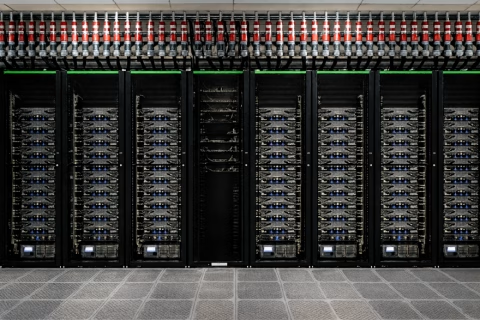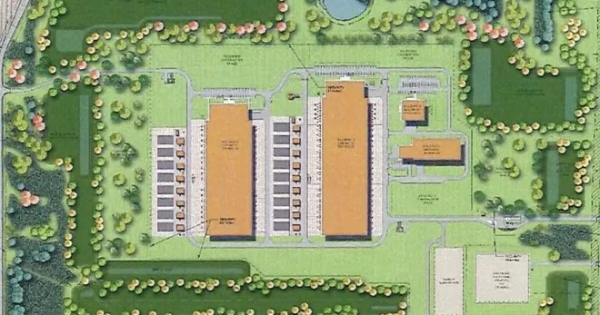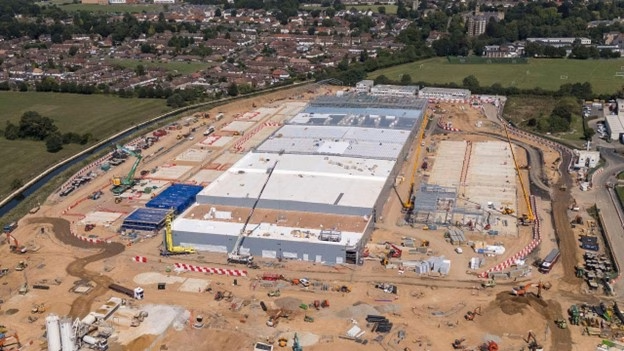In recent years, data centers have become critical infrastructure—powering everything from cloud services to AI applications but cancellations and delays are looming. But while demand continues to rise, the construction pipeline for data centers has hit major roadblocks. Across the globe, several high-profile projects have either been delayed, paused, or cancelled entirely.
Why? The causes vary but typically include:
- Grid capacity constraints and delays in utility approvals
- Skyrocketing construction costs and rising equipment tariffs
- AI-fueled overbuilding leading to market saturation fears
- Land use disputes, supply-chain slowdowns, and regulatory uncertainty
These challenges have forced even the biggest players in the tech space—like Microsoft and Amazon—to hit the brakes on some billion-dollar plans even while states compete to lure data center construction projects. Furthermore, factors such as opposition have been a major hurdle as local communities have shown resentment against data center project. One such data center withdrawn with public scrutiny playing a role is the Howell township data center project in Michigan. Before withdrawal, the data center project in Howell Township faced opposition, though it is not the only one. Opposition to data center projects across the U.S have been fierce. Concerns about energy and water use as well as environmental and procedural concerns have been key factors. For residents in Howell, they had to adopt many of the same organizing tactics used by various communities across the US. Facebook has become a crucial tool for local groups looking to coordinate a response. Others in Bessemer, Alabama have also leveraged the same approach as they oppose the construction of Project Marvel data center.
However, none has succumbed to the pressure of public scrutiny and criticism as the Brennan data center campus outside Chicago, Illinois. Brennan Investment Group withdrew its plans to implement a $2 billion data center campus outside Illinois. The data center was previously planned to be developed in Barrington Hills, on land south of Penny Road and west of Pond Gate Drive. The firm has decided to withdraw its application following criticism and negative feedback from local residents of the area. Moreover, they announced that they would not be advancing the project based on this in a public presentation. Another that seems it may succumb to the same pressure is the proposed data center project in Allen Park by Solstice Data. It currently faces stiff opposition from local residents.

Here are some of the more significant data center project cancellations and delays recently observed:
Microsoft Scales Back 2GW of Projects Globally
Microsoft, a leader in hyperscale development, has dramatically scaled back its construction plans. Over the past year, the company has either canceled or paused up to 2 gigawatts of planned capacity in the U.S. and overseas.
Key affected sites include:
- Licking County, Ohio: A $1 billion campus is on indefinite pause. Two of the planned three sites have reportedly reverted to farmland use.
- Mount Pleasant, Wisconsin: Construction was paused for redesign and technology reassessment.
- Other regions: Delays or cancellations have also hit sites in Australia, the UK, Illinois, and North Dakota.
Microsoft has cited oversupply risk, evolving AI workloads, and high construction costs as core reasons for the pullback.
AWS Suspends Data Center in Minnesota
Amazon Web Services has paused plans to build a large data center campus in Becker, Minnesota, despite earlier approvals. The delay is reportedly due to uncertainty around tax exemptions, particularly related to electricity usage.
Local leaders had hoped the project would replace jobs lost from a retiring coal plant. But with legislation under review, the project is now on hold.
Blue Data Center Project cancelled
Before its cancellation the $3Billion Project Blue was projected to create 180 permanent jobs by 2029 with an average salary of $64,000. It was also expected to generate 3,024 direct construction jobs and 2,049 indirect jobs during the 2026–2028 construction phase. The Tucson City Council put a nail in its coffin when it failed to annex the land that had been secured by the developers in response to opposition by the community over fears of the high water and power demands of data centers as well as overall transparency of the project.
Softbank and OpenAI Stargate Data Center ambitions cutback
In June SoftBank and OpenAI announced the scaling back of the $500 Billion Stargate AI Data Center Construction ambitions. Key issues raise were over site locations, energy supply, and financial structures have stalled progress. This clearly shows that these energy intensive projects will continue to put a strain on power demands and available land resources wile having ot meet environmental demands for the use of clean energy.
Howell Township Data Center Project in Michigan
In the rise of recent data cancellations, the $1 billion data center project in Howell Township has been cancelled. The project is being linked to Meta though there have been no reports to confirm this.
The developer behind the 1,000 acre data center proposal has withdrawn its rezoning application. The reason for this was, as it noted, the right thing to do in honoring the current moratium passed by local authorities in late November. Township attorney Christopher Patterson noted that the township could have gone ahead with the rezoning request. The request was set to be considered on December 8.
However, the site plan for the facility would not have been able to move forward. Developers Stantec Consulting Michigan and Randee LLC wanted to build their data center at the intersection of Grand River Avenue and Fleming Road.

Global Headwinds Disrupt Construction Timelines
Outside of the U.S., delays are also mounting:
- Indonesia and Southeast Asia: Projects face setbacks due to limited grid infrastructure and difficulty importing specialized equipment.
- UK and EU: Power connection delays and stricter environmental permitting have slowed progress in London and other key data center hubs.
- Cooling technology supply issues: Some U.S. sites report delays of up to 6–12 months due to long lead times for energy-efficient cooling systems.
Financial Toll of Delays
Industry analysts estimate that delaying a typical 60MW data center project can cost developers up to $14 million per month in lost opportunity and return on investment.
Add that to material inflation, labor shortages, and utility interconnection delays—and you get a perfect storm that’s forcing developers to rethink timelines.
What It Means for the Industry
The recent wave of delays and cancellations does not mean the end of data center growth—but it signals a strategic shift.
- Developers are becoming more selective, prioritizing markets with grid stability and tax incentives.
- AI is reshaping demand, but also leading to overestimations in infrastructure needs.
- Governments and utility providers will play a larger role in shaping future expansion.
For construction professionals, investors, and suppliers, this creates both risk and opportunity. Those who can offer cost-efficient, scalable, and grid-friendly solutions will be well-positioned in the evolving landscape. It also means that data centers have to embrace more ecofriendly options especially in terms of electricity and water resources. States across the U.S. such as Georgia are becoming more skeptical about data centers as lawmakers in the state and across the U.S. aim to tame the fast growth. For such reasons, data centers have to find more amicable ways of sharing resources with the communities they are based in otherwise, it could hinder A.I development.
If you’d like to stay updated on data center trends and construction opportunities, check back for our weekly insights.

Leave a Reply